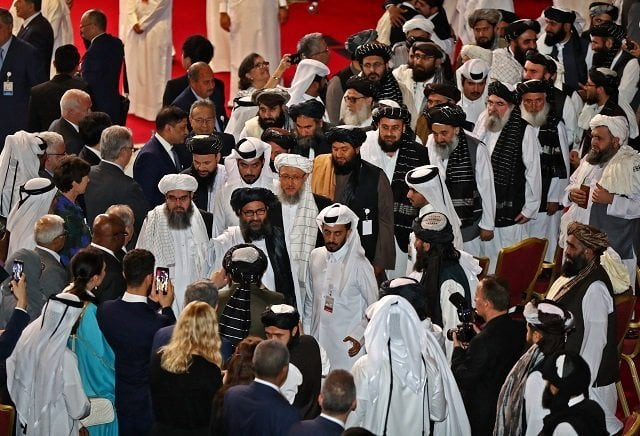Pakistan favours US stay in Afghanistan till political deal
NATO defence ministers prepare for a crucial meeting this week to decide whether to pull out of the country by May

Pakistan is not averse to the idea of the US-led international forces extending their stay in Afghanistan till a political deal is reached through intra-Afghan talks, officials here said on Sunday as defence ministers of NATO prepare for a crucial meeting this week to decide whether to pull out of the war-torn country by May.
NATO officials have already indicated that they may not withdraw troops by May 1 because of the ground situation while the Biden administration is currently reviewing the deal signed by the Trump administration with Afghan Taliban a year ago.
But the Afghan Taliban in a statement on Saturday warned the US and NATO forces not to extend their "occupation."
On Sunday, the Taliban put out another statement on the eve of 32nd anniversary of the Soviet withdrawal, threatening foreign forces with dire consequences if they prolonged their stay.
"Availing this unique opportunity, we would like to call on all participants of the current occupation to learn lessons from the fate of the Soviet Union and failed experiences of the current two-decade occupation, and bring an end to their criminal invasion," read the statement.
The February 29 deal envisages a roadmap for troops’ withdrawal in return for Taliban agreeing to not allow Afghan soil to be used by terrorist groups and entering into talks with the Afghan government.
The US has already withdrawn 12,000 troops since the deal and remaining 2,500 are supposed to return home by this summer. In addition there are NATO troops, which also need to withdraw. However, since the arrival of Biden administration it is not clear if the withdrawal goes ahead as planned.
The US will present its plan before the two-day NATO defence ministers meeting starting on February 17.
Pakistan is keenly watching the developments since whatever decision the new US administration and NATO defence ministers take will have a direct bearing on the country. Islamabad has facilitated and brokered not just the Taliban-US deal but also the intra-Afghan talks.
Pakistan insists that all sides must remain committed to the process as the current efforts have provided a rare and historic opportunity to seek a political settlement to the 19-year-old war.
"We don't want this opportunity to be squandered," said a senior Pakistani official while requesting anonymity.
"While we want every side to stick to the deal, Pakistan desires orderly and responsible withdrawal of the US and other international forces," added the official.
“The key here is not to repeat the mistakes of the past.”
This suggests that Pakistan is open to the idea of US forces staying till final political deal is struck between the Afghan government and Taliban.
Pakistan bore the brunt of sudden disengagement of US from Afghanistan in 1989 triggering a civil war that eventually culminated with the Taliban seizing the control of Kabul.
A recent paper prepared by Pakistan's leading diplomats, retired generals and other experts say that Pakistan neither wants absolute victory of Taliban nor the insurgents to be totally marginalised.
The officials say while Pakistan is in contact with the Biden administration, it is also reaching out to regional players including China, Russia and Iran for a regional consensus on the developing situation.
They believe countries like Pakistan are not in favour of hasty US withdrawal or pullout before a clear political roadmap is agreed upon by all Afghan sides.
It is expected that President Joe Biden would speak to Prime Minister Imran Khan soon to discuss his administration's future strategy for Afghanistan.



















COMMENTS
Comments are moderated and generally will be posted if they are on-topic and not abusive.
For more information, please see our Comments FAQ